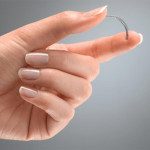 A bill introduced by Rep. Mike Fitzpatrick (R-Pa.) would ban U.S. sales of the Essure female sterilization implant made by Bayer (ETR:BAYN).
A bill introduced by Rep. Mike Fitzpatrick (R-Pa.) would ban U.S. sales of the Essure female sterilization implant made by Bayer (ETR:BAYN).
The “E-Free Act” or H.R. 3920 was introduced Nov. 4 and has 3 co-sponsors: Reps. Marsha Blackburn (R-Tenn.), Gregorio Sablan (I-N. Mariana Islands) and Christoper Smith (R-N.J.). It would direct the FDA commissioner to withdraw approval for the Essure device, the only approved permanent birth control device in the U.S.
Essure is a small metal coil that is placed in the fallopian tubes via catheter. The FDA approved the device in November 2002. In the nearly 13 years since then, the health regulator said it had received 5,093 complaints, including those of pain or menstrual irregularities after using the device, as well as complaints of the device breaking. Those adverse event reports include 5 fetal deaths in women who became pregnant after using Essure and 4 adult deaths for reasons such as infection and uterine perforation, the FDA said.
In a report issued before a September meeting of the FDA’s Obstetrics & Gynecology Devices advisory panel, the agency said it logged a nearly 1,400% spike in complaints filed over Essure in the last 3 years. Yesterday a Bayer’s director of global pharmacovigilance risk management, Dr. Andrea Machlitt, told the panel that it’s received 17,000 adverse event reports, 15,000 of which involved U.S. patients. The panel voted to recommend limited use of Essure until more is known about its safety.
Last month a study found that women implanted with Essure were more than 10 times more likely to require post-procedure surgery than those who underwent laparoscopic sterilization.
“The failures of Essure are well documented and wide ranging. Yet, in the face of all these facts, this device remains on the market; certified with the FDA’s stamp of approval. That’s unacceptable to me and unacceptable to the tens of thousands of “Essure Sisters” who are living with this device’s effects,” Fitzpatrick said in prepared remarks. “If the FDA or manufacturer aren’t willing to act in the best interest of these women, Congress must.”
H.R. 3920 was assigned to the House Energy & Commerce Committee. It has a 5% chance of winning passage, according to GovTrack.us.
“Bayer is committed to working with FDA as it considers the panel’s advice,” a Bayer spokesperson told MDDI. “The safety and efficacy of Essure is supported by more than a decade of science, as well as real world clinical experience – with the product having been studied with more than 10,000 women since it was 1st developed. Bayer stands by the positive benefit-risk profile of Essure as an important option for women who have completed their families and want a permanent form of birth control.”

